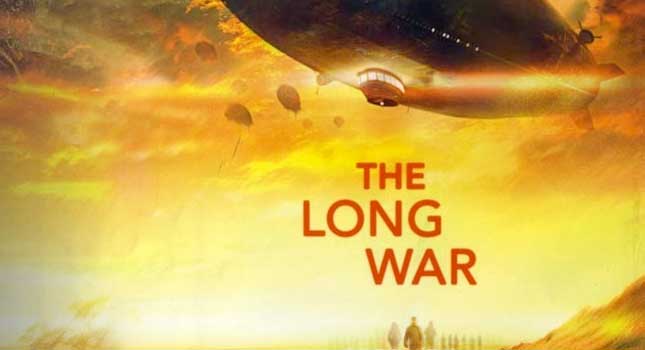
While the writers had been contracted to write a five book series, the recent sad death of Terry Pratchett means that with the recent release of The Long Utopia in June 2015, Baxter will have to complete the fifth outing alone. However, we’d be surprised if the two authors hadn’t already discussed the final part of the story beforehand, so we expect it to be referenced as being co-written in the same way the current four titles have been.
The story picks up a good ten years or so after Joshua and Lobsang’s epic journey into the multiverse iterations of Earth known as the Long Earth. It once again comes at a significant juncture for humanity as they struggle to deal with the vast possibilities at their hot stepping feet with millions of worlds to spread out in and a myriad of new life forms to become accustomed to, with a number of them sentient humanoid creatures like the trolls and dwarfs from the first book.
There are a few new additions to the list of sentient life, but it’s an atrocity at the gap – the step where there is no earth, just open space – that acts as the fulcrum for a rise in tension as a mother troll attacks her captors as they attempt to send her son into the void in a spacesuit as part of a misconceived scientific experiment. With this and other issues coming to a head, including the extent of US control throughout the long earth colonies, Joshua ups sticks from his happy family home to try to persuade the Datum government that a new approach is needed with the help of Lobsang, Sally and now-retired cop, Monica Janson.
This takes the focus of the second book with human troll relations becoming increasingly strained due to a number of similar atrocities committed on the part of the datum earth exodus. It also comes at a period in which people have started to push further into the extremes of the long earth, setting things up well for the continuation of the series with The Long Mars with a reiteration of the importance of the gap’s potential benefit for space travel, the fragility of the multiverse and the sheer variety of life at the outer extremities of the long earth.
It makes for a solid premise for The Long War, with many parallels with our own history and political, social and environmental situation, linking in with themes around equality, power, resources and control. For the most part these are fairly well delivered, but occasionally they come across a little on the cringe-worthy side as the narrative and dialogue overworks a point or lands it with a wayward heavy handed tendency that focuses too stolidly on the point itself without regarding the method of its formation.
Another slight issue for us is that there’s just a bit too much fantasy for a book that otherwise, on the face of things, attempts to be a credible portrayal of our adaptation to the realities of a multiverse, with all its crazy possibilities. It’s not that there are trolls and elves, because they’re sort of explained by our need to give the unknown familiar names, or that there’s more of a spill-off from the Discworld than is needed (the second person singular is about as close to the Great A’Tuin as is possible without throwing a disc on its back), but that there’s just too much fantastical unreality and for it to feel sci-fi enough.
While Terry Pratchett and Stephen Baxter don’t quite live up to the sci-fi classic expectations in The Long War, they have managed to put together a decent enough bridging novel to take things into the mid section of the series. There are just too many saw thumbs and gnawed hands to make it the epic that it could have been, but it leaves just enough breadcrumbs into the potential of the The Long Earth for you to want to keep heading out on the journey.


